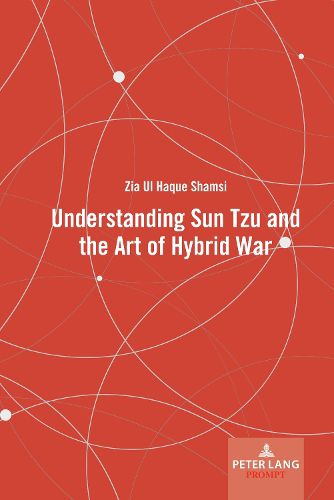Readings Newsletter
Become a Readings Member to make your shopping experience even easier.
Sign in or sign up for free!
You’re not far away from qualifying for FREE standard shipping within Australia
You’ve qualified for FREE standard shipping within Australia
The cart is loading…






This title is printed to order. This book may have been self-published. If so, we cannot guarantee the quality of the content. In the main most books will have gone through the editing process however some may not. We therefore suggest that you be aware of this before ordering this book. If in doubt check either the author or publisher’s details as we are unable to accept any returns unless they are faulty. Please contact us if you have any questions.
The concept of hybrid warfare is as old as warfare itself. However, it has re-emerged with an expanded scope in the twenty-first century. The purpose of the entire campaign is to break the will of the people and win the war without fighting. The modus operandi of the planning and execution of today's hybrid warfare, particularly against unequal military powers (UMPs), is very similar to the precepts of the Chinese sage, Sun Tzu, who prophesied of winning the war without fighting. An analysis of Sun Tzu's The Art of War reveals that he was a proponent of expanding state's influence without the use of force. Inspired by Sun Tzu's precepts, this author is proposing that states may acquire power for the promotion of peace within and peace without, as opposed to classical realism which insists on power and security. The sustained period of peace would enable the state to concentrate on economic development and societal progress. The same would help the state in perception management and project its soft power among the comity of nations. Such a state would then have the capacity to help develop other regional countries to expand its area of influence. However, the states that use their hard power to subdue other nations not only violate Sun Tzu's dicta; but also end up spending huge resources, cause total destruction of the target state, and yet are unable to maintain a sustained occupation in contemporary international system.
In view of the continued relevance, this author attempts to rediscover Sun Tzu's precepts from The Art of War and its application in today's hybrid warfare, deploying deductive reasoning, and qualitative analysis of contemporary wars and conflicts.
$9.00 standard shipping within Australia
FREE standard shipping within Australia for orders over $100.00
Express & International shipping calculated at checkout
This title is printed to order. This book may have been self-published. If so, we cannot guarantee the quality of the content. In the main most books will have gone through the editing process however some may not. We therefore suggest that you be aware of this before ordering this book. If in doubt check either the author or publisher’s details as we are unable to accept any returns unless they are faulty. Please contact us if you have any questions.
The concept of hybrid warfare is as old as warfare itself. However, it has re-emerged with an expanded scope in the twenty-first century. The purpose of the entire campaign is to break the will of the people and win the war without fighting. The modus operandi of the planning and execution of today's hybrid warfare, particularly against unequal military powers (UMPs), is very similar to the precepts of the Chinese sage, Sun Tzu, who prophesied of winning the war without fighting. An analysis of Sun Tzu's The Art of War reveals that he was a proponent of expanding state's influence without the use of force. Inspired by Sun Tzu's precepts, this author is proposing that states may acquire power for the promotion of peace within and peace without, as opposed to classical realism which insists on power and security. The sustained period of peace would enable the state to concentrate on economic development and societal progress. The same would help the state in perception management and project its soft power among the comity of nations. Such a state would then have the capacity to help develop other regional countries to expand its area of influence. However, the states that use their hard power to subdue other nations not only violate Sun Tzu's dicta; but also end up spending huge resources, cause total destruction of the target state, and yet are unable to maintain a sustained occupation in contemporary international system.
In view of the continued relevance, this author attempts to rediscover Sun Tzu's precepts from The Art of War and its application in today's hybrid warfare, deploying deductive reasoning, and qualitative analysis of contemporary wars and conflicts.